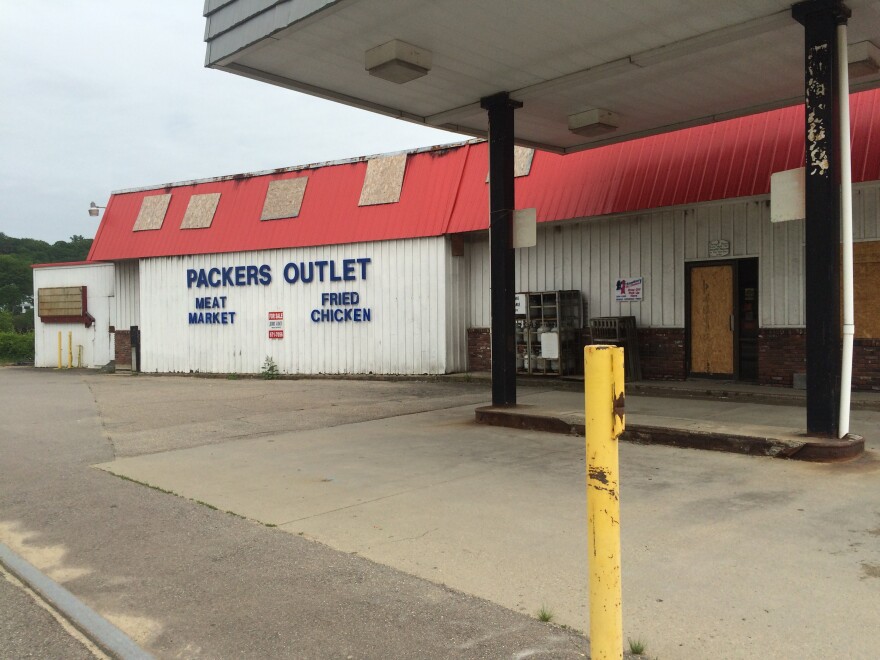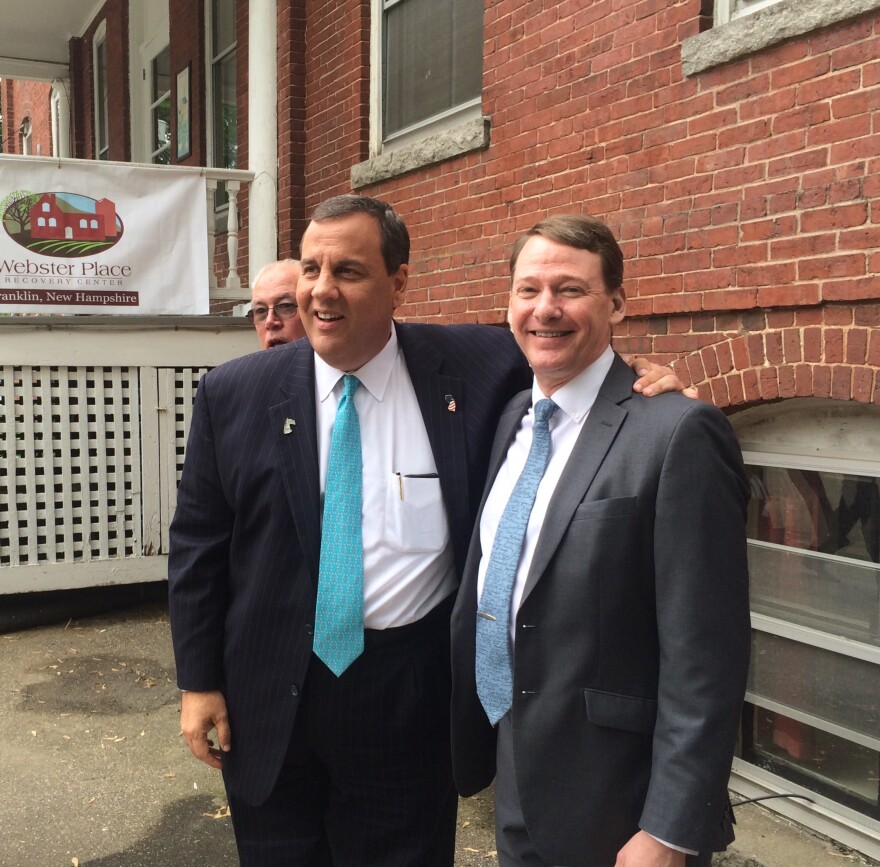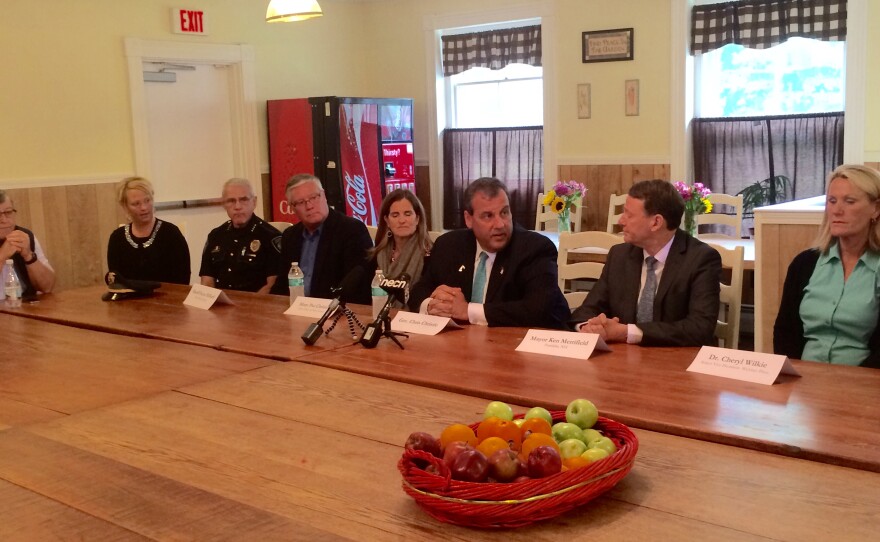Governor Chris Christie of New Jersey has made it his mission to shine a spotlight on drug addiction as he tests his presidential appeal in the early primary state of New Hampshire.
In Franklin Friday, Christie met with local officials and advocates at Webster Place, a 42-bed treatment house, for a candid, personal discussion.

Openness, Christie stressed is important if the country is going to address this epidemic.
“We really haven’t heard a president talk about the drug situation. If there is not a better evidence of stigma, I don’t know what is, because you don’t have the President of the United States, despite the fact that our country is awash in this problem,” he told the panel.
Last month Christie stopped at the Farnum Center, another treatment facility in Manchester.
But for residents of Franklin this is more than just a campaign issue. So far this year six people have died from drug overdose in Franklin, and almost 30 others were revived by the overdose reversal drug Narcan.
“It’s an outrageous number for communities our size, Franklin is only 8,500 people, neighboring towns are even smaller. It’s incredible to see the number of people we are losing. We have a heroin overdose a week,” said Mayor Ken Merrifield, adding that although there has been an uptick in drug use, Franklin has been dealing with the problem for quite some time.
Like many New England mill towns, Franklin was once vibrant, but as the mills closed, the local economy felt the hit. While driving through town, you can’t help but notice the boarded-up shops and vacant lots posted with "For Sale" signs.

“We have a lot of economic depressed individuals, we have a strong vibrant welfare system, and in conjunction with that we have a lot of subsidized housing,” said Police Chief David Goldstein, who says the poor economy has led to an increase in crime and drug abuse.
That's something Bob Hurley, a resident of ten years, is all too familiar with.
Standing in downtown Franklin, Hurley points out the toll that drug use has taken on the city.
“Do you see the buildings down there with the blue, I mean, with the green roofs on them?" he says. "A few years ago one of those roofs were blown off by a meth lab. You go down a few blocks you have a drug house there almost operating right in the open. There has always been a drug problem here."
But back at the police station, Goldstein says this is an issue the city is not trying to hide.
“The mayor, the city manager, the council, myself, and the other department heads, we do not have our heads in the sands. We acknowledge the fact that we do have a problem here.”
Five years ago, Franklin's mayor started a drug task force made up of local leaders who meet twice a month to brainstorm how better to address this issue. The focus, the mayor says, is on prevention and treatment and -- most importantly -- keeping an open dialogue.

“One of our primary goals is awareness of the problem," Merrifield said. "And I think that by reducing the stigma and not considering every user to be a criminal but someone who needs help is really important in turning the problem around."
Cheryl Wilkie, who works at the Webster House, has been clean for 27 years. She says removing the stigma around substance abuse is key to tackling this epidemic.
“We are not going to stop talking about it. We are going to still have these meetings and keep shaking the trees and we are going to keep asking you all to talk about it because the stigma has kept us all quiet for too long and it is what kills people,” she said.
















